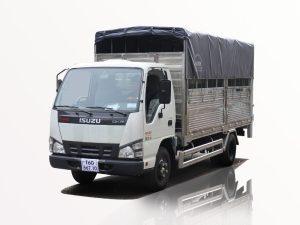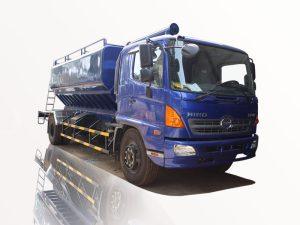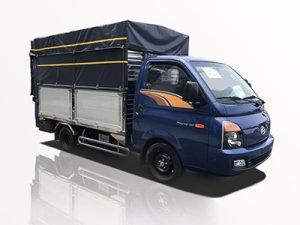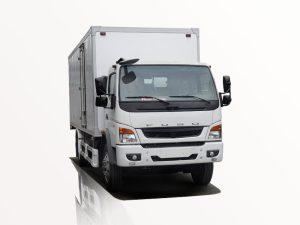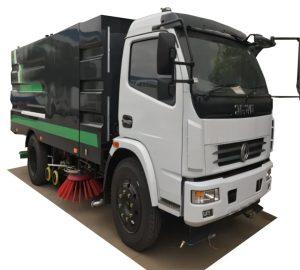Monday to Saturday - 8:00 -17:30
How Much Does a Cement Truck Hold? Understanding Capacity, Types, and More
When working on a construction project, understanding the materials you need is crucial, and concrete is one of the most vital. Cement trucks serve as the delivery method for ready-mix concrete to construction sites. But one common question arises: how much does a cement truck hold? In this article, we’ll delve deep into the capacity of cement trucks, the different types available, and practical examples to help you make informed decisions.
The Basics of Cement Trucks
Cement trucks, also known as concrete mixers, are specialized vehicles designed to transport and mix concrete from a batch plant to the construction site. Their unique structure allows them to keep the concrete in motion, preventing it from setting too early. Understanding how much concrete a cement truck can hold is integral for planning projects and estimating costs.
What Is the Typical Capacity of a Cement Truck?
Most standard cement trucks have a capacity ranging from 6 to 14 cubic yards of concrete, but several factors influence this number, including truck size and local regulations. The most commonly used full-size trucks typically hold:
| Truck Size | Capacity (Cubic Yards) |
|---|---|
| Small Truck | 6-7 cubic yards |
| Standard Truck | 8-10 cubic yards |
| Large Truck | 10-14 cubic yards |
Factors Affecting Cement Truck Capacity
While many standard sizes exist, various factors can influence how much concrete a cement truck can actually carry:
- Local Regulations: Different regions may have limits on how much weight a truck can legally carry.
- Truck Design: Concrete trucks come in various configurations that can affect capacity. For example, some have larger drums or specialized designs for certain types of concrete.
- Material Density: The weight of the concrete mix can affect how much can fit in the truck due to weight restrictions.
Types of Cement Trucks
Cement trucks come in several different types, each designed for specific functions. Understanding these types can help you choose the right truck for your project needs.
1. Standard Transit Mixers
Standard transit mixers are the most commonly used cement trucks. They have a rotating drum which keeps the concrete in motion during transportation. These trucks typically hold between 8 to 12 cubic yards of concrete.
2. Concrete Pump Trucks
Concrete pump trucks transport concrete using pumps instead of relying on gravity. This allows for more precision and can deliver concrete to more difficult locations. The capacity can vary, but many can hold up to 10 cubic yards or more.
3. Volumetric Mixers
Volumetric mixers can mix the concrete on-site. They allow for greater flexibility as they can produce different types and amounts of concrete as needed. The storage compartment typically holds enough cement, aggregate, and water for 10-12 cubic yards.
4. Rear Discharge Mixers
These mixers have a rear-mounted discharge chute, which allows for greater placement precision. Their capacity generally aligns with standard transit mixers, usually ranging from 8 to 12 cubic yards.
Calculating Concrete Needs for Projects
Determining how many cement trucks you’ll need for a project requires accurate calculations. Here’s a general guide on how to estimate your concrete needs:
Step 1: Calculate Volume
Measure the area where you will be pouring concrete. Use the following formula for volume:
Volume (Cubic Yards) = Length (ft) x Width (ft) x Height (ft) ÷ 27
Step 2: Determine Number of Trucks
Once you have the total cubic yards needed, divide this by the capacity of your chosen truck to determine how many trucks will be necessary:
Number of Trucks = Total Volume ÷ Capacity of Truck
Example Calculation
If you are pouring a slab that measures 10 feet long, 5 feet wide, and 0.5 feet deep, the calculation would be:
Volume = 10 ft x 5 ft x 0.5 ft ÷ 27 = 0.93 cubic yards
If you decide to use a standard truck with a 10 cubic yard capacity:
Number of Trucks = 0.93 ÷ 10 = 0.093
You will need only a portion of a truck, meaning one truck can cover multiple smaller jobs.
Cost Considerations for Hiring a Cement Truck
Understanding the cost of hiring a cement truck is essential for budgeting your construction project. The price can vary based on several factors:
1. Type of Cement Truck
As discussed, different types of trucks vary in pricing. Standard transit mixers typically cost less than concrete pump trucks or volumetric mixers.
2. Distance and Location
The distance from the concrete plant to your construction site can significantly influence transportation costs. If the site is far or in a difficult-to-access area, prices increase.
3. Volume of Concrete
Most companies have a minimum charge for small loads. Larger orders generally provide better per-cubic-yard pricing.
4. Additional Services
Special services such as delivery outside regular hours or extended waiting times can also incur extra charges.
Typical Cost Estimates
Here are typical cost ranges for hiring cement trucks, but always check local prices for accuracy:
| Truck Type | Cost per Cubic Yard | Average Minimum Charge |
|---|---|---|
| Standard Transit Mixers | $110-$150 | $250-$300 |
| Concrete Pump Trucks | $150-$200 | $500 or more |
| Volumetric Mixers | $120-$180 | $300-$350 |
Tips for Using Cement Trucks Effectively
To ensure a smooth experience with your cement truck delivery, consider the following tips:
1. Schedule in Advance
Due to high demand, especially during peak construction seasons, plan your concrete delivery well ahead of time.
2. Prepare the Site
Ensure that the site is accessible and ready for concrete pouring to minimize delays and potential extra costs.
3. Communicate Clearly
Maintain open lines of communication with your concrete supplier to discuss timing, delivery expectations, and project needs.
4. Verify Load Capacity
Always confirm the capacity of the cement truck vehicle before finalizing the order to avoid running short on concrete.
Maintenance and Care of Cement Trucks
To maximize the lifespan and efficiency of a cement truck, proper maintenance is critical. Here’s what you need to focus on:
1. Regular Cleaning
Cement can harden in the drum if not cleaned promptly. After each load, ensure that the drum is cleaned out thoroughly.
2. Inspections
Regularly inspect brakes, lights, and hydraulic systems to ensure they are functioning correctly. This helps in avoiding breakdowns on the job.
3. Monitoring Wear and Tear
Keep an eye on the tire condition and tire pressure. Worn tires can create unsafe driving conditions.
Frequently Asked Questions (FAQs)
What is the average weight of a full cement truck?
A full cement truck can weigh between 20,000 to 30,000 pounds (10,000 to 15,000 kg), depending on the size of the truck and the amount of concrete it carries.
How long does it take for concrete to set?
Concrete typically begins to set within 30-45 minutes after mixing, but it can take up to 28 days to fully cure and reach its maximum strength.
Can I mix my concrete in a cement truck?
Some trucks, like volumetric mixers, allow you to mix concrete on-site, but standard transit mixers deliver pre-mixed concrete and are not designed for mixing.
What happens if I order too much concrete?
If you order more concrete than you need, many companies have policies for returning excess concrete, but you may incur unloading fees.
How do I choose the right cement truck for my project?
Consider factors such as the amount of concrete needed, accessibility to the site, and the type of project to choose the right cement truck.
Is there a minimum order for concrete delivery?
Yes, most concrete suppliers have a minimum order requirement, usually around 1 to 2 cubic yards, but this can vary by location.


